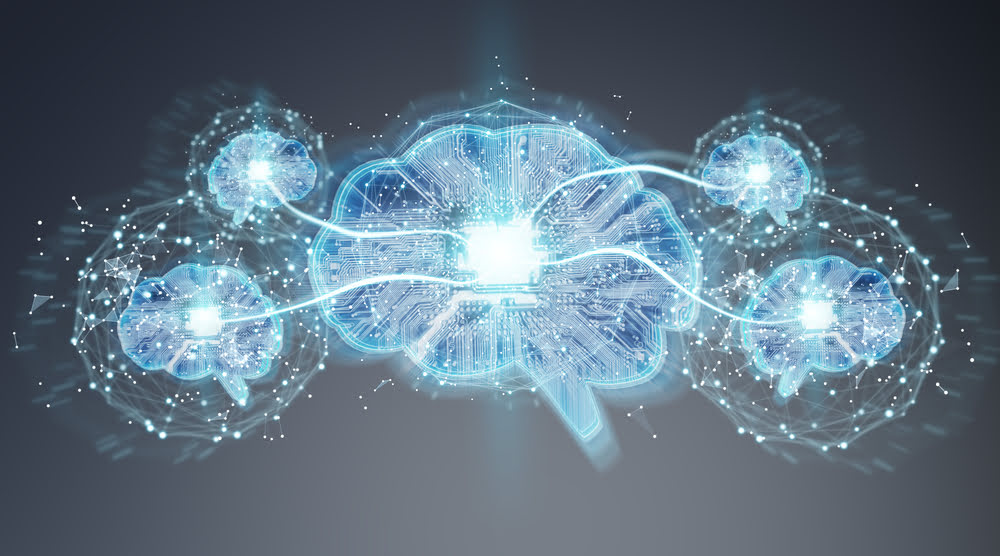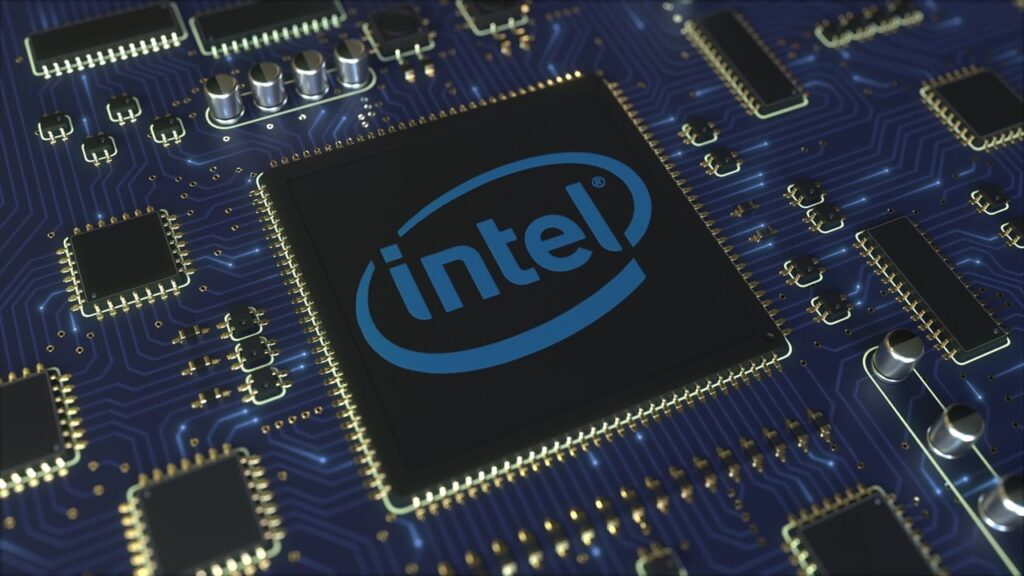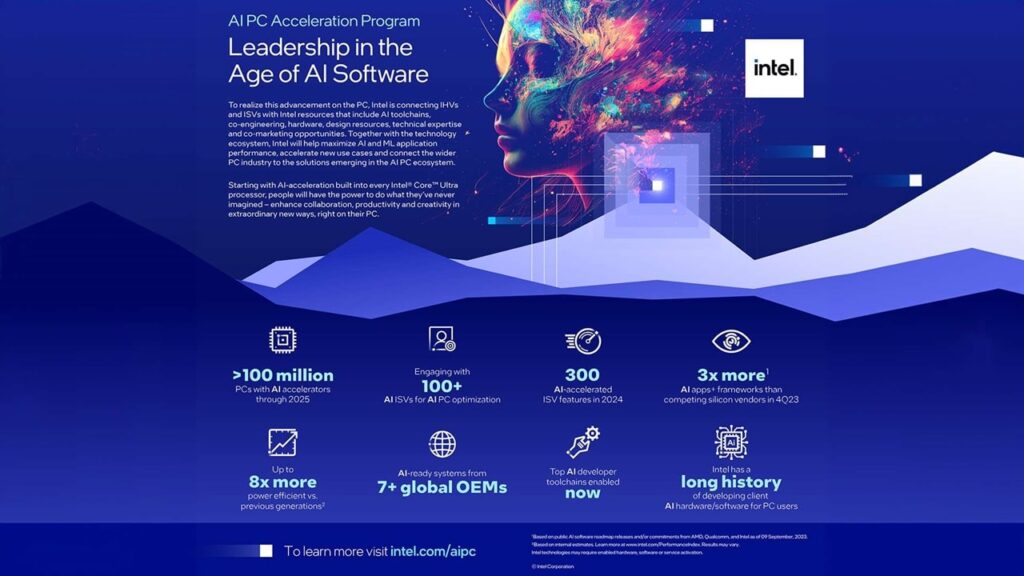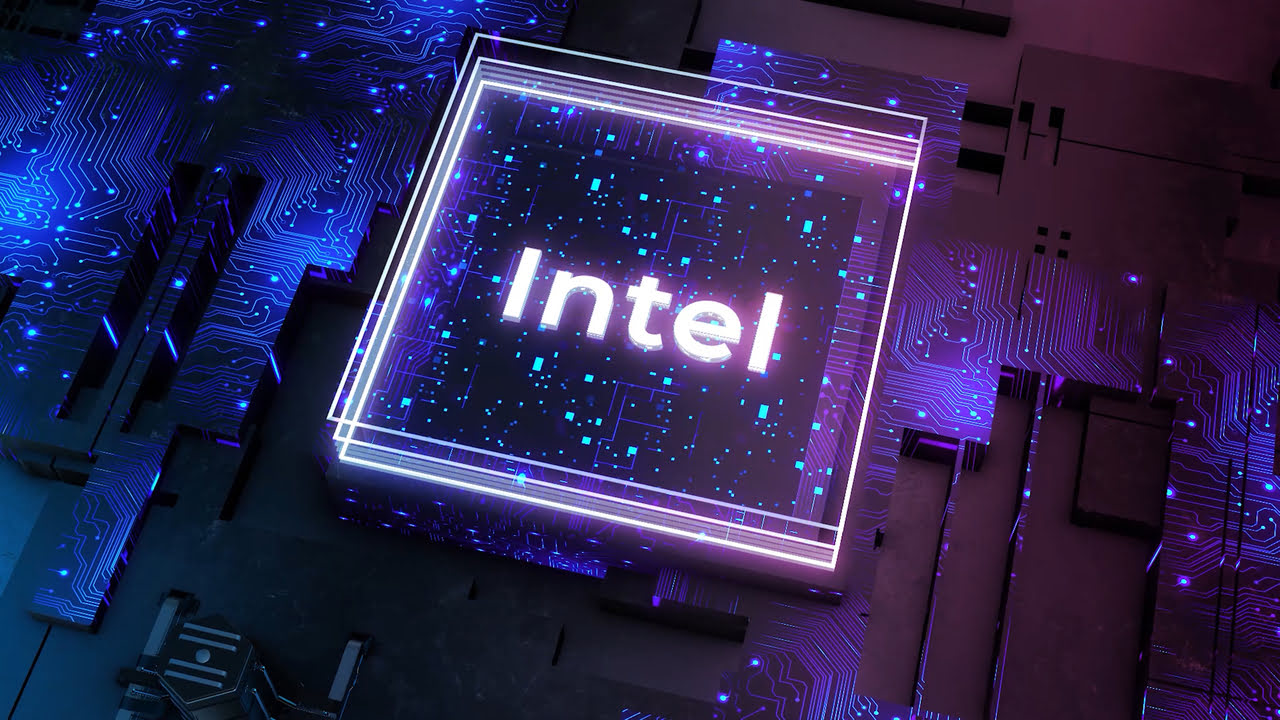Intel announced the new program AI PC Accelerationwhich will accelerate the development of artificial intelligence on personal computers. Robert Hallockdirector of technical marketing at Intel, helped us understand how the program works and what it can do for the future of AI on the PC.
Intel AI PC Acceleration, how the program works
The AI PC Acceleration program includes initiatives to make Intel resources available, including an AI toolchain, technical cooperation, hardware, design resources and technical expertise. The goal is to support partners in the development of more efficient and high-performance AI applications.
Intel will work with partners to promote AI solutions and applications in PCs through co-marketing opportunities. It will also provide technical assistance and development resources, including tools such as OpenVINOto optimize AI applications.
Intel has recognized the critical importance of software in the user experience of AI-powered PCs and is actively collaborating with 100+ partners on 300+ AI-powered featuresincluding well-known names such as Adobe, CyberLink and Zoom.
Hallock explains to us that “the type of support varies greatly, depending on the companies. Adobe is a big company and has experience in the field, others are just starting their AI journey.” But he explains that, in many cases, it is not only a question of technical support, but also of communication, to explain the potential of AI.
Starting from training

The manager explains to us that AI “in some cases It really seems like a bit of magic. I’m thinking for example of video editing, with AI that can for example remove a person from a video. Or tools that are used to summarize a meeting or ChatGPT to make a presentation. We know we have to work for train the public, but also the sellers. We need to condense everything we are doing for AI into a single resource. Intel’s influence on the PC hardware market makes us perfect for this job, we can work with OEMs and vendors.
And addressing us journalists in the digital round table, he says that Intel and the industry must also “help the media to understand how to discuss this software, explain how to carry out benchmarks”.
According to Hallock, carefully explaining that some AI tools will simply improve functions already used can help educate on the topic. “For many tools and apps, AI will arrive without much fanfare: it will save time for actions that we already know how to put into practice. This could help adoption.”
The role of Intel Ultra Core “Meteor Lake”

The new Intel Ultra Core “Meteor Lake” technology will play an important role in the future of AI on PCs, without always having to resort to the cloud. But the software will also be important: for this reason the Intel AI PC Acceleration program is critical.
Hallock explains that when the Meteor Lake chips arrive “they will be there thirteen or fourteen apps that will come from this program. Especially content creation: videos, images and more. In the long run, for example in first six months of 2024 office tools. And in 2025 probably solutions for the AI-enabled cybersecurity. In the next two years we could perhaps see something new in the world of gamingperhaps by genre the textures or the dialogue of the NPCs, something that could make the difference for small studios”.
Intel’s accelerator program aims to ensure that software developers can make the most of the Meteor Lake architecture. “Some algorithms they will work in the CPU, others in the GPU and still others in the NPU. Stable Diffusion, for example, uses all three of these computational units for different processes in image generation. Today’s hardware isn’t going away, but dedicated chips will be needed to optimize performance.
The chips designed by Intel allow you to exploit this software directly from your PC. “AI saves a lot of time, but we will increasingly see new applications that we didn’t even imagine until recently. ChatGPT has had a huge explosion in a very short time and now plays an important role for many businesses. But the cloud is expensive: having the right power in your PCs will make the difference, also because of the issues of privacy e safety. This is a Renaissance for PC hardware“.
Intel AI PC Acceleration: Optimized hardware and software

As Hallock explains, users won’t have to think about some chip to use on the PC. “Developers can manually select CPU, GPU or NPU for optimize some tasks to the maximum, but most software will automatically exploit the best engine, perhaps more than one.”
So we need to work as hard as we can to enable AI calculation on PC, avoiding bottlenecks and working software and hardware side by side. “Many systems will use faster RAM memories to optimize AI work. Another bottleneck could be the enormous amount of accessible data, which is why many LLMs (like Meta’s LLama 2, for example) aim to offer contextual answers, working on data that is of interest to users or companies directly on private PCs or servers”.
But most importantly, understand that AI will enable so many different types of software. Hallock makes an intelligent comparison with gaming: “I’m there lighter games and heavier ones, users choose the most suitable hardware according to their needs. The same will also apply to AI software: users and companies will be able to take advantage of the right hardware for the type of work (graphic, generative, etc.) they need to do.”
If you want to learn more, you can find all the information on the Intel Partner Alliance’s AI Accelerator Initiative on this site.















Leave a Reply
View Comments